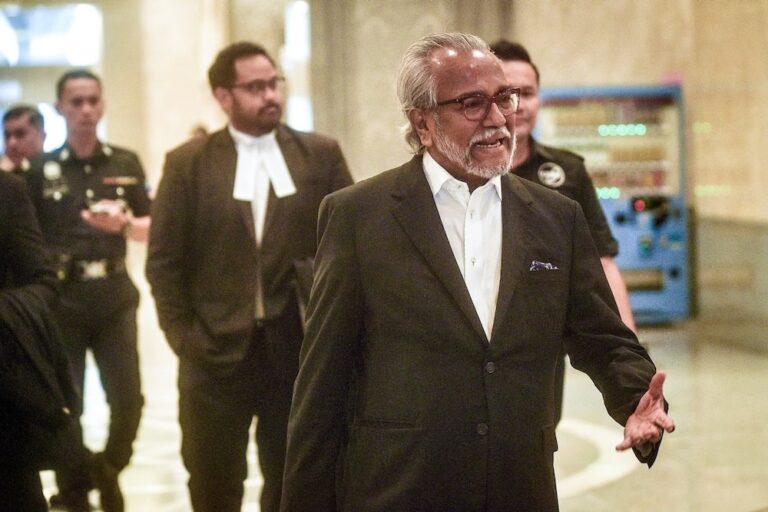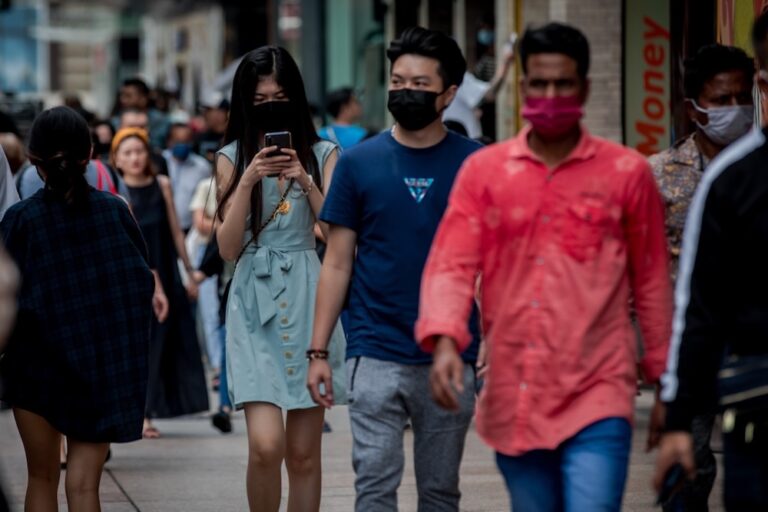(SEAPA/IFEX) – SEAPA is concerned over a series of actions by Malaysian authorities against broadcast, print and electronic media, which point to increasing intolerance for free expression and differing viewpoints. The National Censorship Board recently banned the film “I don’t want to sleep alone” by award-winning filmmaker Tsai Ming Liang, according to a 27 February […]
(SEAPA/IFEX) – SEAPA is concerned over a series of actions by Malaysian authorities against broadcast, print and electronic media, which point to increasing intolerance for free expression and differing viewpoints.
The National Censorship Board recently banned the film “I don’t want to sleep alone” by award-winning filmmaker Tsai Ming Liang, according to a 27 February 2007 statement by the Centre for Independent Journalism (CIJ).
“Among the reasons cited (for the ban) is that it portrayed the unsightly side of the capital city, Kuala Lumpur, and affected the government’s ongoing tourism campaign,” said CIJ, a SEAPA partner in Malaysia working on communication rights.
Tsai, a Malaysian filmmaker based in Taiwan, was informed of the ban via a 31 January 2007 letter from the board. He is appealing the decision.
The board recently banned the independent documentary “Apa Khabar Orang Kampung”. In a 26 February appeal against the ban, filmmaker Amir Muhammad argued for a “limited viewing” rating for his film, since it has been ruled “inappropriate for general viewing”, among others.
In addition, on 16 February, the Malaysian Communications and Multimedia Commission (MCMC) banned “Sensasi”, a Malay-language entertainment talk show aired by private broadcaster TV3. Its live broadcast on 30 January was found to have breached conditions 3.1 and 5.5 (i) of its permit, by “failing to take appropriate steps to censor or control inappropriate content”. The ban was triggered by a female actor’s allegedly inappropriate comment about the Prophet Muhammad’s first wife.
In a 26 February statement, MCMC said the values portrayed in the show were against Islam Hadhari (civilisational Islam) as propounded by Prime Minister Abdullah Ahmad Badawi. “The requirement to be sensitive to the community’s feelings was contained not only in the Content Code and the Special Licence Conditions but also in the Multimedia and Communications Act 1998,” it said.
Meanwhile, the ban on K. Arumugam’s “March 8”, a Tamil-language book about the 2001 racial clashes in a slum area near the capital city, was only made known to the author through a 19 January news report, which said the ban took effect in December 2006.
Arumugam’s book is among the 56 publications banned by the Internal Security Ministry in 2006, which includes the Indonesian translation of Charles Darwin’s “Origin of Species” by F. Susilohardo and Basuki Hernowo. (The full list is available at: http://www.mois.gov.my/opencms/export/KKDN/BhgPQ/senaraiharam2006.html )
Arumugam filed an application on 24 February to the Kuala Lumpur High Court for a judicial review against the ban on his book, which chronicles the 15 days of racial clashes in Kampung Medan that killed six people and injured more than 40. The majority of the casualties were Indian. This ethnic group is the most marginalised after the indigenous peoples in the multi-ethnic country dominated by Malays.
Following a deputy minister’s statement in December 2006 that Internet laws may be introduced to control bloggers and prevent them from spreading “disharmony, chaos, seditious material and lies”, yet another threat against cyberspace was issued recently.
On 25 February, Deputy Internal Security Minister Fu Ah Kiow was reported to have said that the government will act against those found “circulating news or pictures that can pose a threat to public safety”. The warning came after pictures of local illegal motorcycle racers were found online, “potentially harming national security”.
SEAPA supports CIJ’s call on the government to “lift the ban on the programme and all books; repeal the Printing Presses and Publication Act (PPPA), which legalises book banning; stop any threat and action against Internet users and set up a Parliamentary Select Committee on communication rights”.
In banning Tsai Ming Liang’s film, which reveals the urban poor and seasonal smog in Malaysia, among other issues, “the government is punishing a filmmaker who engages with the local problems, rather than engaging in the problems themselves,” CIJ said.
“Similarly, the government engages in whitewashing history by prohibiting the publication of research on the Kampung Medan incident,” it continued.
Regarding the ban on Darwin’s book, CIJ said, “It is noteworthy that the banning of a Bahasa Indonesia version . . . shows that the Malay-speaking community, the ruling coalition’s largest constituency, is being denied information available to those fluent in English.”


